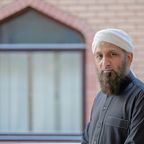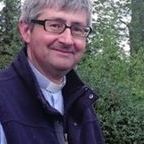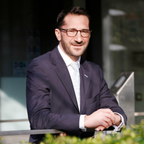Speakers




Dr Thearina de Beer
Consultant Intensivist and Anaesthesia, Nottingham University Hospitals NHS Trust



10am – 5pm BST, 30 June 2025 ‐ 7 hours
LEAG
Discussions about spirituality and religious beliefs may induce anxiety in healthcare professionals managing day-to-day care, especially around the end of life. Lack of familiarity and understanding of how different religions impact decision-making around limitations of treatment are also frequent in critical care.
This symposium hosted by the Legal and Ethical Group of the Intensive Care Society explores the main faiths in the UK and will allow healthcare professionals to pause and reflect on delivering effective and culturally competent care and communication.
10:00 – 10:30 Registration and coffee
10:30 – 10:40 Introduction of the day
10:45 – 11:00 Setting the scene
11:05 – 12:45 View of different religions on:
(The panel will include faith representatives in the UK)
12:45 – 13:30 Lunch
13:30 – 15:00 Practical approach (round table)
15:00 – 15:15 Coffee/ Tea
15:15 – 15:45 Religion and best interests
15:45 – 16:45 Practical tips for culturally sensitive communication
16:45 – 17:00 Close




Consultant Intensivist and Anaesthesia, Nottingham University Hospitals NHS Trust




Consultant in Critical Care, King's College Hospital
Dr Victoria Metaxa is a full-time Critical Care and Major Trauma Consultant, at King’s College Hospital in London. She is a King's College London Honorary Clinical Senior Lecturer, and has a PhD in neurosciences and an MA in Medical Ethics and Palliative Care from Keele University. Her clinical interests include bioethics, end-of-life care, critical care outreach and the management of patients with haematological malignancies. Dr Metaxa is a member of the European Society of Intensive Care (ESICM) Ethics section, and the representative of the section in the e-learning committee. She is the UK National Outreach Forum board Secretary and a member of the Legal and Ethical Advisory Group of the UK Intensive Care Society (ICS).
Wellspring UK
Miriam’s 18 years in the congregational rabbinate led her to the founding of Wellspring and now works full time on bringing it to life. Wellspring is a centre of wellbeing with the ritual of mikveh at its heart. Previously, she doubled the size of Finchley Reform and made it a flagship synagogue of the Reform Movement. Her creativity and innovation led to pioneering endeavours in education, prayer services and pastoral work as well as hitting the headlines throughout the pandemic with novel ways of engaging her community whilst keeping them safe.

Barts Health NHS Trust
Imam Yunus Dudhwala holds a B.A. in the traditional Islamic Studies, from Al-Azhar University, Cairo.
Imam Yunus started his career in chaplaincy over 25 years ago. In 2003, he became the first person from a minority faith to lead a chaplaincy team in the NHS at Newham Hospital, East London. He is currently Head of Chaplaincy at Barts Health NHS Trust. He was named Healthcare Hero/NHS Employee of the Year 2010 at the HEAL Awards, hosted by 24/7 Media Group.
Throughout his career, he has spoken at national and international conferences organised by the European Network for Healthcare Chaplaincy, the College of Healthcare Chaplains, Cruse Bereavement Care, Child Bereavement UK, Brake Road Safety Charity, and National Scottish Police Association, to name a few.
He is the Head of Islamic Guidance for the NHS Muslim Health Network. He is a Trustee of the Muslim Bereavement Support Service which he helped to set up and is the principal trainer for the volunteers of the organisation. He supports many other organisations as adviser and trainer.

Consultant Intensivist and Anaesthesia, Nottingham University Hospitals NHS Trust
Dr Thearina de Beer MBChB FRCA DICM FFICM LLM (Health Law) RCPathME , is a Consultant in Anaesthetics and ICM including Neuro-ICM at Nottingham University Hospitals. Thearina is currently Divisional Director for the Clinical Support Division. She is a Medical Examiner at NUH and is deputy lead ME for NUH. She is on the ICS – Legal and Ethical Advisory Group. Her special interests are delirium and the impact on long stay patients, legal and ethical issues around critical and neuro-critical care.

St John Baptist Berkswell and Warwick University
Mark Bratton was born and raised in Beirut, Lebanon, and educated in England. He holds undergraduate degrees (or their equivalent) in history, law, and theology, as well as graduate degrees in medical ethics and law. His PhD explored judicial understandings of autonomy in ethically contentious medical law cases. Following a brief career as a barrister, which included a stint as a project research assistant at the Law Commission, Mark trained as an Anglican priest, serving in university and parish settings. He is currently Rector of St John Baptist Berkswell, near Coventry. He has represented the Diocese of Coventry on General Synod, the Church of England's parliament, twice and led a project exploring the ethical, legal, scientific, and theological dimensions of advances in human genome science (cf. God, Ethics, and the Human Genome, CHP 2009). He is a regular reviewer for the Journal of Contemporary Religion. Mark has served on several ethics committees, including the Warwick University Health and Social Sciences Ethics Committee, the Warwick University Animal Welfare Board, and the Coventry Research Ethics Committee. He is currently the non-clinical Co-Chair of the University Hospitals of Coventry and Warwickshire Clinical Ethics Forum. Mark has a special interest in the relationship between religion, ethics, and law.

Partner, Kennedys Law
Rob leads Kennedys’ healthcare team in Cambridge. He advises NHS Trusts on healthcare law, medical negligence litigation, end of life decisions, judicial reviews, consent and capacity to treatment, inquests and mental health and capacity law. Working with NHS Resolution he manages a team of lawyers working on clinical negligence claims of the utmost severity, including cerebral palsy, neurological injuries, neonatal deaths and psychiatric injuries. He has a specialist practice in medical treatment cases involving declarations to treat and withdrawal of treatment and lectures on these topics. He is legal advisor to the Intensive Care Society’s LEAG and to Thrive LDN, a mental health taskforce. He sits on the Cambridge University Hospitals NHS Trust clinical ethics advisory group. During the pandemic, Rob actively advised the ICS and the National Executive Critical Care Committee. Rob’s recent high profile cases include: AH v Cambridge University Hospitals NHS Foundation Trust (2021) – obtaining a declaration to withdraw ventilation from a 56 year old, described as “the most complex COVID patient in the world” and Tafida Raqeeb v Barts Health NHS Trust and others (2019) – complex Judicial Review and treatment case concerning withdrawal of life sustaining treatment for 5 year old Muslim child.

Jain & Hindu Organ Donation Alliance
Prafula Shah is a living kidney donor and a leader from the Jain community, known for her work in promoting interfaith awareness and humanitarian efforts both in the UK and internationally.
Born in Nairobi and raised in India and the UK, Prafula has a deep passion for religious studies and an appreciation for all faiths, as well as those without faith.
As a communications professional she has worked for some of UK’s best know brands and public sector organisations including the Royal Courts of Justice as a Media Manager for Appeal Court Judges.
After donating a kidney to her niece in 2018, she became an organ donation ambassador for NHS Blood & Transplant for London & the South East. Prafula was invited to join the Jain and Hindu Organ Donation Steering Group as Secretary in 2019 and now serves as Chair of the Jain & Hindu Organ Donation Alliance – a charity working to raise awareness of blood, stem cell, and organ donation across the UK. Through outreach and online engagement, the charity fosters strong connections with community organisations and champions within the Jain and Hindu communities.